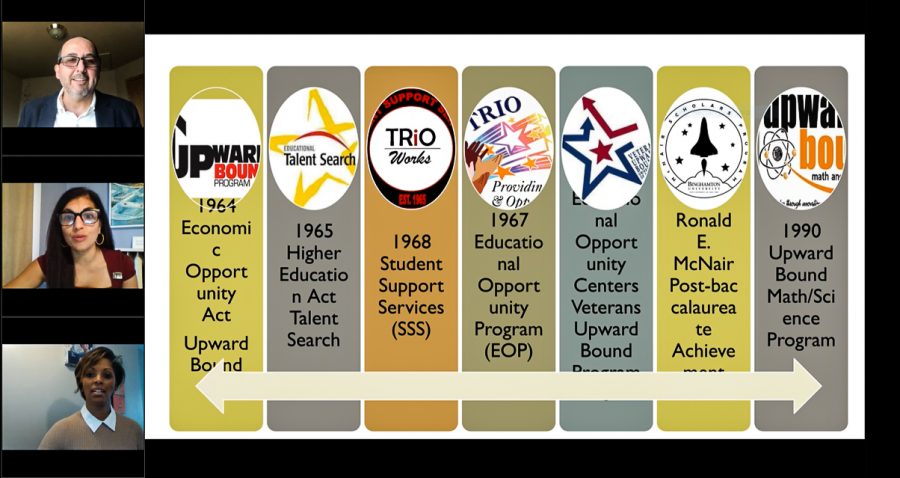Speakers emphasize importance of first-generation programs
Access to higher education became available due to Civil Rights Act, Higher Education Act
Universities need to not only acknowledge first-generation students, but also the on-campus experiences of first-generation students who are of different races and social classes, speakers said.
November 9, 2020
Universities use the word first-generation without truly recognizing the layers beneath the word.
First-generation students deserve to complete college, said Sarah Whitley, assistant vice president for the Center for First-generation Student Success, at an event Nov. 6. The 2020 Joint First-Generation College Celebration was hosted by The Center for First-generation Student Success and the Council for Opportunity in Education.
“We must help first-generation students understand the tremendous assets they bring to our campus communities,” Whitley said. “We must remove systemic barriers to success that plague our institutions.”
COE President Maureen Hoyler said President-elect Joe Biden’s first-generation status must be acknowledged.
“It’s important that [Biden’s] sensitivity, his understanding of first-generation students and their families, and more importantly, of their potential to contribute to the leadership of our country … can’t go untapped,” Hoyler said.
Hoyler said she heard Biden speak a couple of years ago about being a first-generation student.
Oscar Felix, assistant professor at Colorado State University, said the movement to support low-income, first-generation students began with historical events. This includes the Civil Rights Act,the Higher Education Act of 1965, as well as the Brown v. Board of Education in 1954 when the U.S. Supreme Court declared segregated schools unconstitutional.
Rashné Jehangir, associate professor at University of Minnesota, said she saw a Tweet that read, “to engage in politics was to engage in power.” She said first-generation students must use their voices to incite change.
Universities need to not only acknowledge first-generation students but also acknowledge the on-campus experiences of first-generation students who are of different races and social classes, Jehangir said.
Felix said it is important for first-generation students to form relationships with other first-generation students and staff to remain motivated and have a comfortable college experience.
Kaye Monk-Morgan, interim vice president for regional engagement and economic development at Wichita State University, said the population of first-generation students is growing at her school, which means it is putting more emphasis on creating programs to support first-generation students.
Sometimes it is difficult for some universities to finance programs that help specific groups of people like first-generation students, she said. In these cases, attaching personal wants to the needs of universities can help those programs be created or maintained.
“If you can tie what you need to do or what you want to do as a solution to something they absolutely need, it makes it a lot easier for you to get what it is to get — someone to support your initiative,” Monk-Morgan said.
Jehangir said not everyone is going to be compelled by a moral argument, so it is important to make a compelling argument and have a selling point.
“Everybody has the first-gen story,” Felix said. “So help people talk about their own journey and narrative, and you’ll find a lot of a lot of ways to open up and have fun.”









